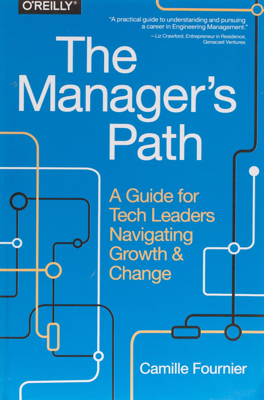Mentoring
The Importance of Mentoring
Roles and Benefits
Mentoring is often the first step towards people management for many engineers, playing a crucial part in their development and the growth of their mentees. Effective mentoring benefits both parties; mentors gain early leadership experience and mentees receive guidance crucial for their onboarding and professional growth in the organization.
Types of Mentorship Roles
- Mentoring Junior Team Members: Often involves senior engineers guiding juniors or interns, helping them integrate and understand workplace culture and technical demands.
- Mentoring an Intern: Focuses on providing meaningful, structured projects and requires active involvement from the mentor to ensure the intern's productivity and growth.
- Mentoring a New Hire: Involves guiding new employees through company processes, culture, and helping them build their network within the company.
Effective Mentoring Practices
- Project Initiation: Assign clear, manageable projects with defined milestones to help mentees start contributing meaningfully.
- Active Involvement:
- Regular check-ins to track progress and provide necessary guidance.
- Listening attentively to understand mentees' needs and challenges.
- Communicating expectations and project objectives clearly.
- Adjusting to Responses: Tailoring support based on the mentee's progress and feedback. Recognizing different paces and learning styles is key to effective mentorship.
Challenges and Solutions
- Mentors may face challenges like balancing their own work while providing adequate support to mentees.
- Establishing clear communication and expectations from the start can prevent misunderstandings and ensure a productive relationship.
Impact on Career Paths
Mentoring can significantly influence the career development of both mentors and mentees. It helps build leadership skills for the mentors and provides the mentees with necessary insights and skills to navigate their professional journeys effectively.
Technical and Career Mentoring
While not directly related to management, this form of mentoring revolves around enhancing specific technical skills or career guidance. Effective technical mentoring occurs naturally and is mutually beneficial, enhancing the team's overall productivity.
Key Actions for Mentors
- Be Curious and Open-Minded: Use mentoring as an opportunity to learn and view challenges from fresh perspectives.
- Listen and Communicate Effectively: Develop skills in explaining concepts clearly and listening to understand the mentees’ views or problems.
- Build and Utilize Connections: Recognize the mentoring relationship as a chance to strengthen professional networks that may benefit both parties in the future.
Evaluating Personal Mentoring Experience
Reflect on past mentoring experiences to assess what strategies or approaches worked well and what could be improved. Key considerations include:
- How effective the mentorship was in achieving its goals.
- Lessons learned from any challenges faced during the mentoring process.
- The overall impact on the mentee's and the mentor's professional growth.
Organizational Support for Mentoring
Organizations should actively support mentoring by: - Providing resources and guidance for mentors. - Recognizing and rewarding effective mentorship. - Ensuring mentorship programs have clear objectives and structured support to maximize benefits for mentors and mentees alike.
